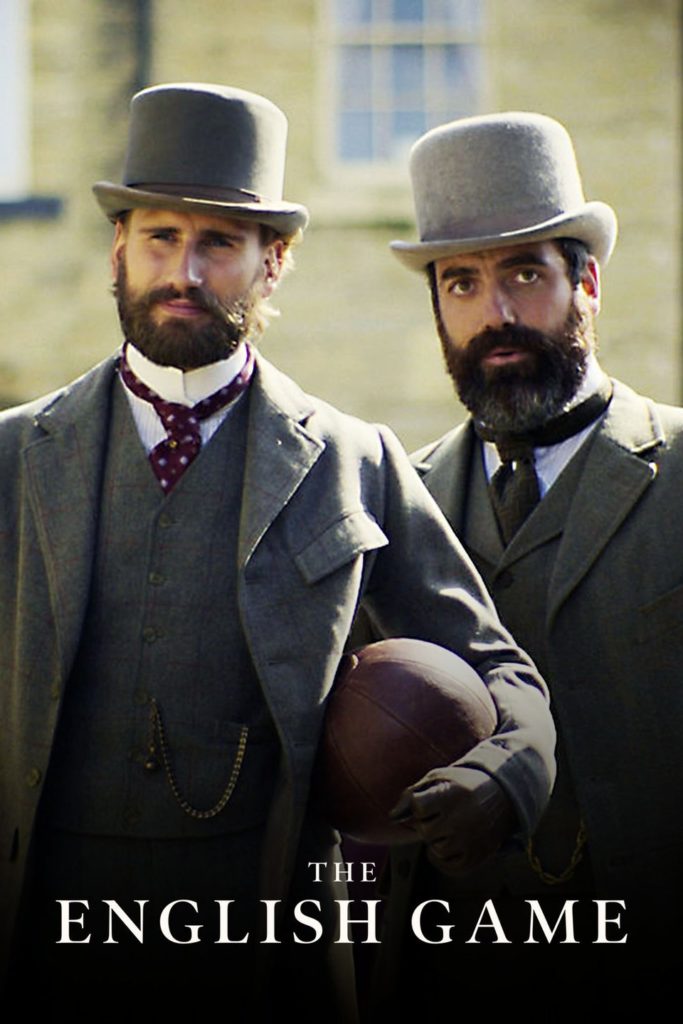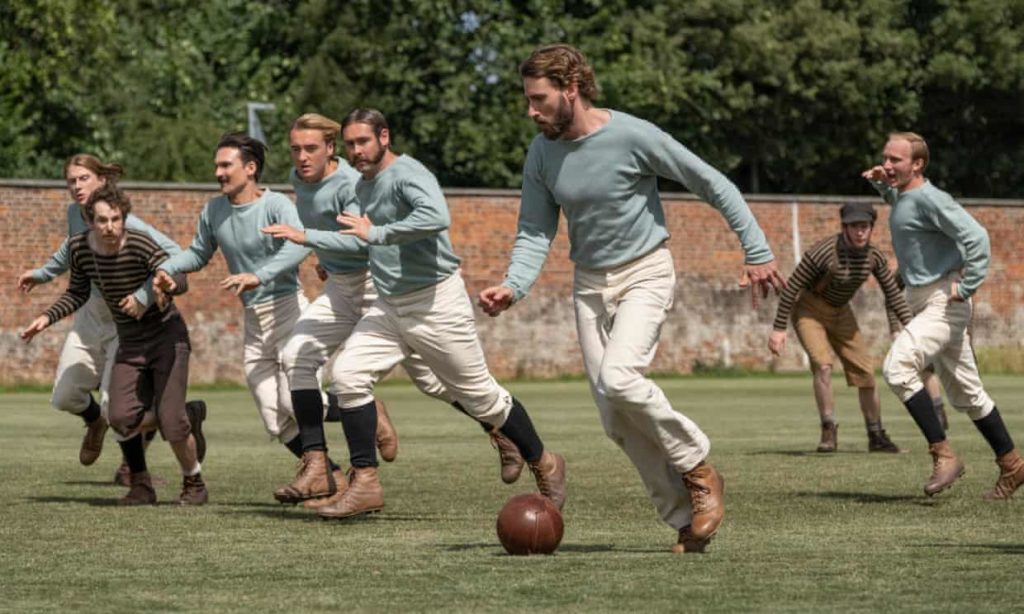“The English Game”–From Provincial to International

The English Game, created by Julian Fellowes (of “Downton Abbey”), is a Netflix Original period drama based upon a true story. Set in 1880’s England, The English Game is a notable example of class divisions exhibited in the early evolution of football aka soccer. Rising from a provincial game that was socially stratified for the “Old Etonians” of noble birth, we see the evolution of football to a world-class game, perhaps the most popular in the world.
Soccer’s first governing body was an “old-boy network” consistent with a clubby insular game for the privileged. They knew the playbook but to their chagrin soccer began to trickle down to the lower classes.

By the time The English Game opens, two Scotts from a mill town are drafted as the first paid players in soccer. Fergus Suter (Kevin Guthrie) and his friend, Jimmy Love (James Harkness) become the stars of the mill town soccer team, and prepare for playing in the semi-finals against the aristocrats. They create a new strategy of playing that upends the traditional style followed by the elite.
However, players being compensated for their skills were against the Football Association’s rules and so, the plot thickens. Arthur Kinnaird (Edward Holcroft), an Old Etonian of impeccable aristocratic status, is a founding member of the Football Association and heir to the white-shoe family bank that owns the mill sponsoring the paid players. His team is the arch-rival to the mill town team and unaccustomed to their innovative play strategy.

While The English Game is ostensibly about sportsmanship and soccer in particular, the overriding theme is class division and the leveling of the playing field for all who qualify, not just those who create exclusionary rules to avoid competition. And the subplots of competition between father and son, women’s vulnerable status and exploitation in a world of privileged men, in a highly rigid society are compelling to watch.
You don’t need to be a sports fan to enjoy The English Game!
